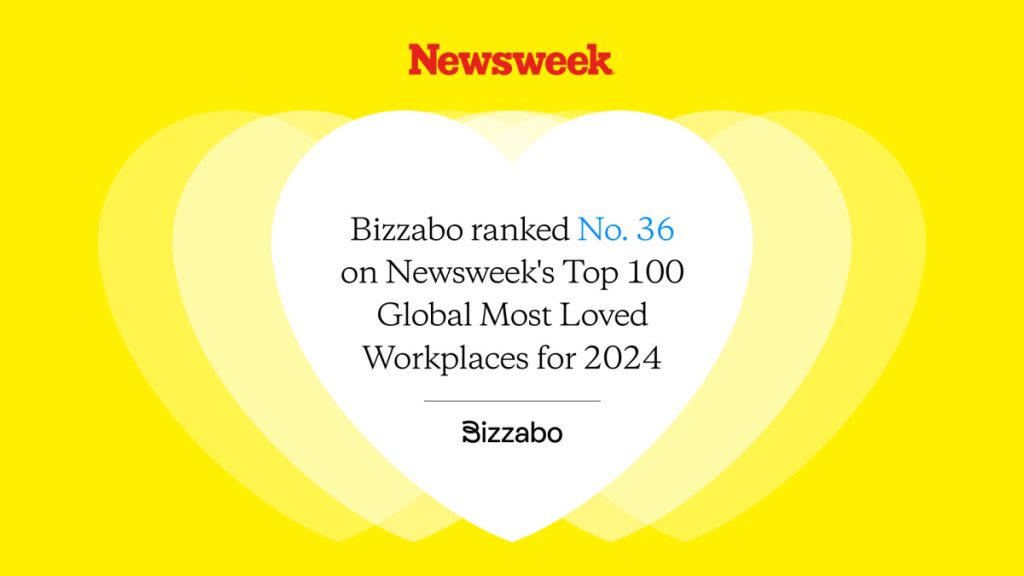Event Risk Management: How To Plan for the Next Crisis


If the last few years have taught us anything, it’s that anything can happen. The go-to buzzword is “pivot,” and for a good reason: We’ve all had to quickly shift to Plans B, C, and even D when unexpected challenges have come our way.
As we ride an optimistic and calmer wave in the events industry — in-person and hybrid events increased 2X over the last three months, compared to the 3 months prior, according to Bizzabo data — event organizers are embracing the power of risk management. What is risk management in event planning?
- It’s preparing for the unexpected.
- It’s preemptively identifying possible issues.
- It’s embracing adaptability.
Successful event risk management includes three stages: adapt, evolve, and evaluate. In this article, we’ll walk through each stage in-depth and explore how you can master risk management.
Stage One: Adapt
1. Conduct a Risk Assessment
Do a deep dive on your event for possible issues. What are the most significant potential risks? These include:
- Challenges with sponsors, performers, or speakers, including pulling out at the last minute
- Technical or electrical issues
- Weather events or natural disasters
- Health crises or related problems
Each event is different, but events carry more risks if they include any of the following components:
- Alcohol and/or food
- More than 50 attendees
- Minors or animals
- Physical activities
- Rides, inflatables, or mechanical devices
- Outdoor activities
- Fire, explosives, or combustibles
Not sure about your risk level? Use a risk-assessment instrument like the Risk Factor Analysis Tool from Siena College to identify the most significant risks for any event.
2. Review Refund Policies and Financial Implications
Event Experience Leaders know how different contracts look these days. Agreements with venues, vendors, and sponsors often have built-in clauses that accommodate the unexpected twists and turns of the post-COVID world.
Review these agreements carefully to clearly understand who is responsible for what if and when plans change. Make sure you’re assessing financial consequences when analyzing risk. In that vein, consider purchasing event insurance, and be clear with attendees about your cancellation policies.
- Want to learn more about event industry lingo? Read “Event Planning Glossary: 85+ Industry Terms To Know.”
3. Choose To Reschedule or Pick Another Format
Part of your event risk management plan needs to address contingencies if the event can’t go as planned. Do you reschedule or cancel? Do you change the format from in-person to virtual? It all depends on the specific event and how much it would cost to make the necessary adjustments.
Hopes are high that most meetings and events will have an in-person component this year and beyond, but we know what happens to the best-laid plans. That’s why it’s wise to have contingencies lined up and ready to go. For many Event Experience Leaders, hybrid events will provide the flexibility they need in the face of uncertainty.
“Hybrid meeting formats will continue to gain traction as they help expand reach to wider audiences, create a built-in virtual contingency plan, and increase return on investment,” according to Meeting Spotlight.
4. Communicate Changes As They Happen
If plans change, communication is critical. Prepare action items that you can kick into gear if needed. Your designated event webpage can operate as a centralized place for information. You also can send out messages through email, social media, and push notifications for a more timely impact.
In a crisis or uncertain situation, communication is key. Here is some risk management communication advice for your next event:
- Include the time and date when updating websites and social media.
- Use simple graphics to indicate new plans or expectations.
- Update information everywhere to keep the message consistent across all channels.
- Communicate regularly with further details as the situation evolves.
- Give attendees and speakers plenty of notice if an event gets canceled, postponed, or taken to a new format.
Event risk management requires planners to recognize attendees’ many worries and logistical concerns as they venture back to in-person events. Understanding how to work around pandemic-related issues can help shape preparedness strategies in general.
- Need to cancel your event? Check out these “8 Event Cancellation Email Examples From Top Brands.”
Stage Two: Evolve
1. Create a Plan for the Future
The best risk management plan is one you make ahead of time. Adaptability is essential when confronting unexpected challenges at the last minute, which happens to the best of the best, but evolving means looking forward and preparing accordingly.
Some top concerns among respondents to a survey by Blerter and Event Risk Management Solutions included the following:
- Severe weather
- Rising security costs
- Active shooters
- Crowd safety
Although not as big a concern to the survey respondents, lost children and slips and falls were some of the more common incidents cited. Making plans around any of these potentialities would be a good idea.
2. Develop Policies and Procedures
Once you’ve identified any higher-risk activities at your event, you can develop a set of appropriate policies and procedures. This process may include:
- Creating checklists or lists of “dos and don’ts”
- Assembling waivers and informed consent forms
- Initiating training and education programs
- Reviewing relevant permits (e.g., those required for selling alcohol)
- Double-checking local laws, rules, and regulations
Check out our webinar, How to Take Care of Your Attendees and Team When Navigating a Crisis, for more information on how to develop attendee-driven policies and procedures.
3. Invest in Event Tech
Using dynamic, easy-to-use event technology can help at all levels of your preparedness plan, including the following:
- Tracking attendee information and registrations
- Automating communications and keeping everyone informed
- Automating refunds, if needed
In addition to tracking and automation, an effective event technology platform offers the best flexibility between in-person, virtual, and hybrid events. Should the format change at the last minute, or if attendees change their minds about how they want to participate, event management technology can seamlessly accommodate those needs.
Stage Three: Evaluate
Every event risk management plan needs a thorough post-mortem to understand what worked and didn’t. You can use this time to ask the following questions:
- How did the technology perform?
- How well did your communication strategy work?
- Were your policies and procedures appropriate and complete?
- Did your team adapt when needed?
According to the Blerter and Event Risk Management Solutions survey: “In the current global climate of biological, environmental, economic and social uncertainty, a heightened awareness of risk means that event managers should conduct an honest review of their understanding and management of risk.”
Streamline Your Event Risk Management
All the pieces must come together to mitigate risk in the world of events. You need to be able to adapt, evolve, and evaluate to achieve the highest-quality preparedness plan. Using the right technology dramatically enhances your ability to deliver the cutting-edge communication, automation, and flexibility central to effective event risk plans.
Want to learn more about contingency planning for your next event? Watch our on-demand webinar — Moving Forward No Matter What: How to Navigate Event Uncertainty — and learn more about what you can do to ensure your next event is one for the ages.



